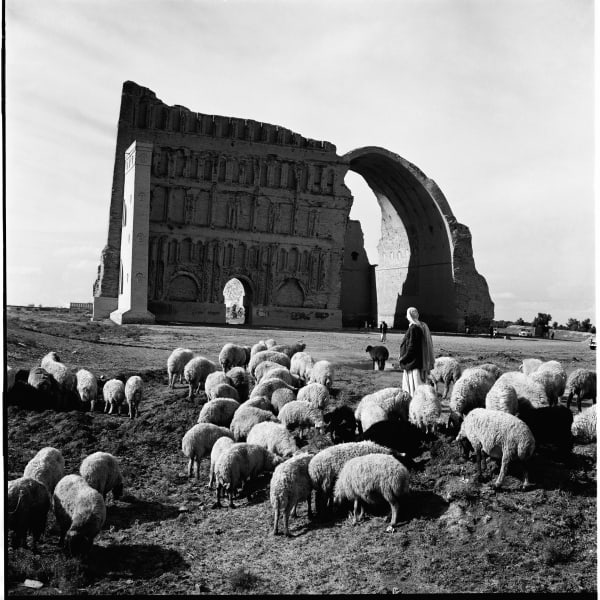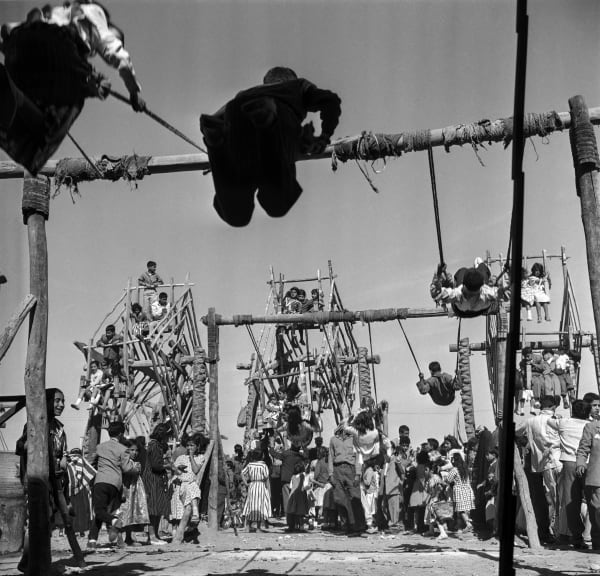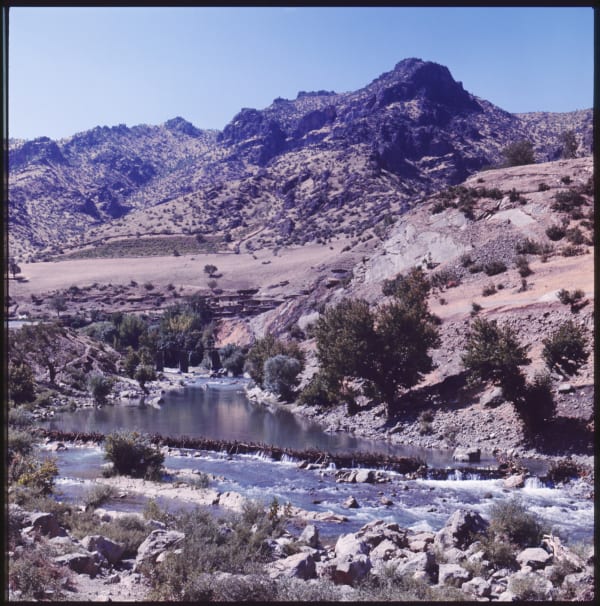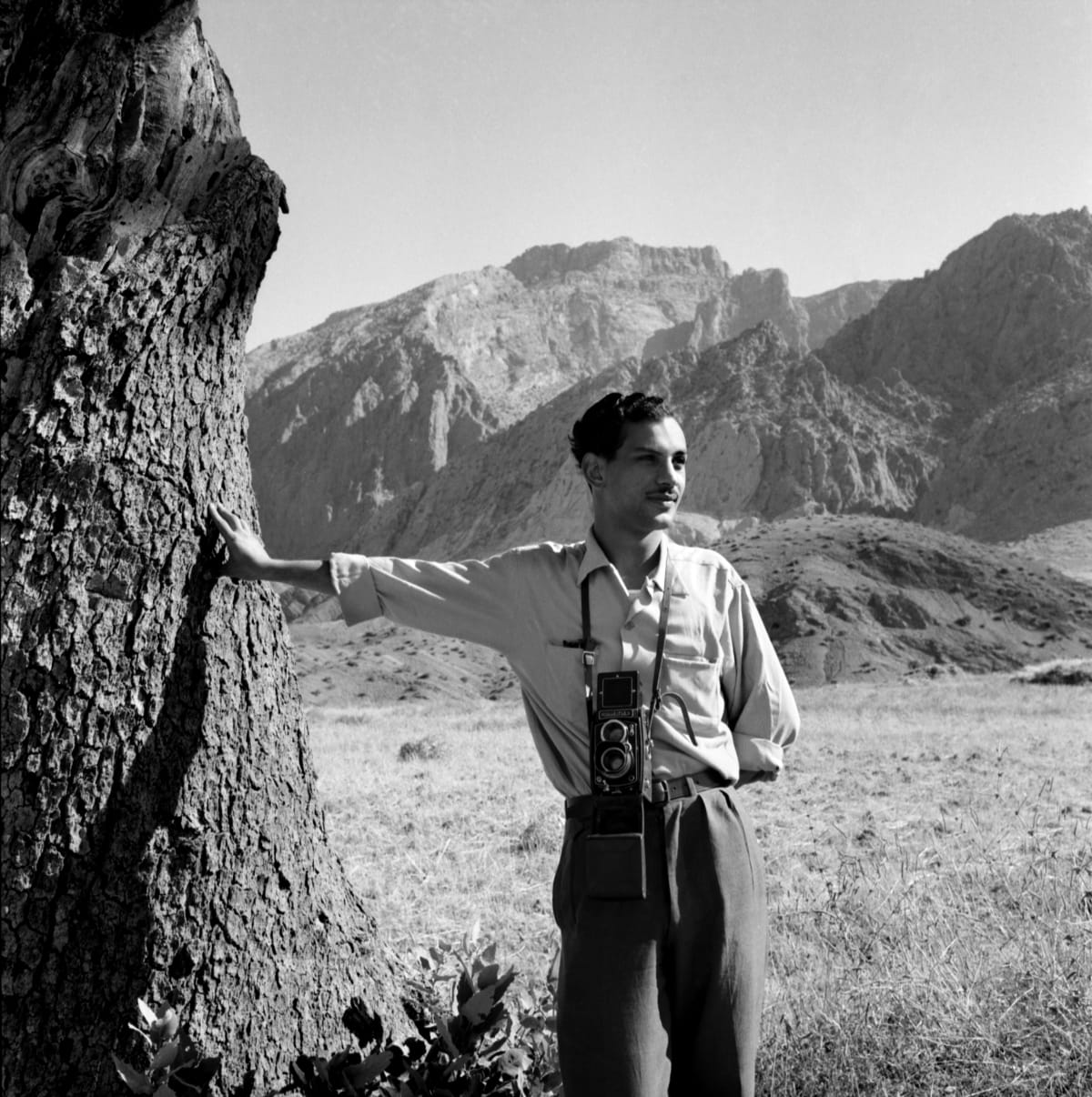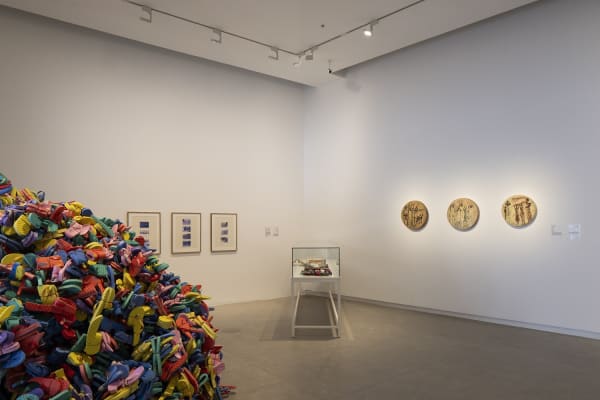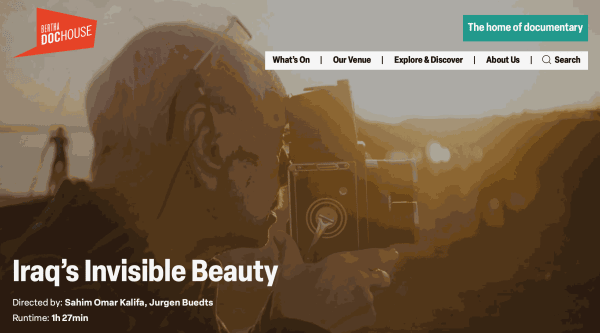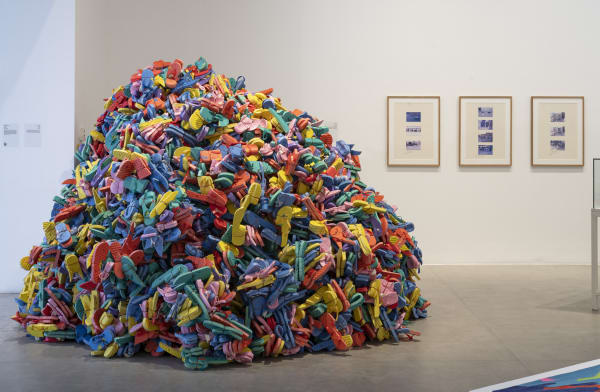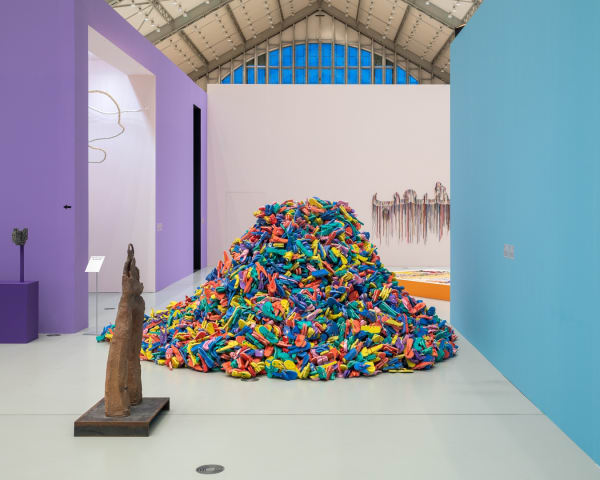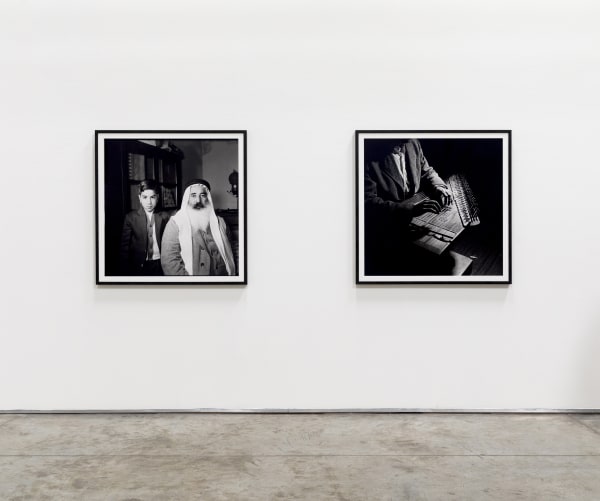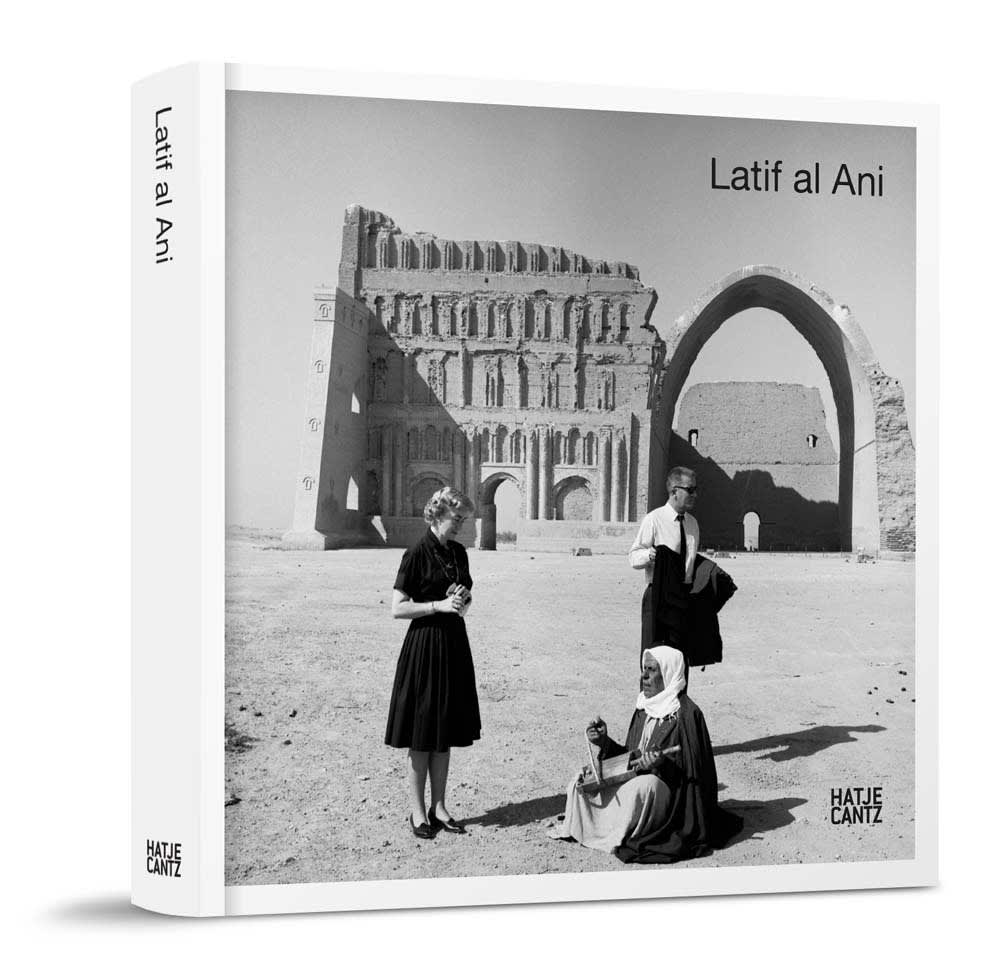Latif Al Ani (1932 - 2021) is considered the founding father of Iraqi photography.
The tragic modern history of Iraq has bared witness to revolutions, coups, wars, and sanctions, interwoven with some brief periods of peace and prosperity. Al Ani’s extensive career spans the late 1950s to the late 1970s, documenting the broad sweep of Iraqi daily life during that period, encapsulating a now lost aspect of Iraqi society. Whilst on assignment for the Iraq Petroleum Company to document the modernisation and industrializing of Iraq during a window of socioeconomic boom, Al Ani criss-crossed the country by foot, by car and by plane. He was the first photographer to have the opportunity to shoot aerial views of Iraq’s archaeological sites, its capital city of Baghdad, or the luxuriant palm groves. On the side, he developed a singular aesthetic language, Al Ani looked for beauty and the uncanny in the portraits of ‘his own people’, historical monuments, street scenes and imposing landscapes. His works reflects his interest in archeology and modern life, and the intersection that architecture makes between the two. The outbreak of the Iran-Iraq war prompted his decision to cease his photographic journey once and for good and it is only recently that a reappraisal of his work has taken place.
-
 Aegean Sea, Turkey, 1966, 2019
Aegean Sea, Turkey, 1966, 2019 -
 Child in a modern house, Baghdad, 1964, 2019
Child in a modern house, Baghdad, 1964, 2019 -
 Building the Darbandikhan Dam, Darbandikhan, Kurdistan, 1962, 2019
Building the Darbandikhan Dam, Darbandikhan, Kurdistan, 1962, 2019 -
 Housing project office, Yarmouk, Baghdad, 1962, 2019
Housing project office, Yarmouk, Baghdad, 1962, 2019 -
 Shepherd, Ctesiphon, Al Mada'in, 1962, 2019
Shepherd, Ctesiphon, Al Mada'in, 1962, 2019 -
 Shepherd, Baghdad, 1962, 2019
Shepherd, Baghdad, 1962, 2019 -
 Aqrah, Nineveh, 1961, 2019
Aqrah, Nineveh, 1961, 2019 -
 School lunch, state primary school, Baghdad, 1961, 2019
School lunch, state primary school, Baghdad, 1961, 2019 -
 Feast day in Baghdad 1960, 2019
Feast day in Baghdad 1960, 2019 -
 Valley in North Iraq, 1960, 2019
Valley in North Iraq, 1960, 2019 -
 Sports in School, Baghdad, 1960, 2019
Sports in School, Baghdad, 1960, 2019 -
 On the way to Damascus, 1955, 2019
On the way to Damascus, 1955, 2019
-

THE FOUNDRY - "THE CIRCLE WAS A POINT"
FEATURES WORKS BY MOHAMMED KAZEM AND LATIF AL ANI 16 February 2024Mohammed Kazem and Latif Al Ani are taking part in a group exhibition “The Circle was a Point” presented by the Barjeel Art Foundation at...Read more -

Sharjah Art Foundation, UAE
In the Heart of Another Country: The Diasporic Imagination Rises 24 July 202315 July — 24 September 2023 On view as a part of In the Heart of Another Country are the works of Hassan Sharif, Mohammed...Read more -

Betha Dochouse, London
Iraq’s Invisible Beauty film featuring Latif Al Ani - directed by Sahim Omar Kalifa & Jurgen Buedts 21 July 2023Currently on view at Bertha DocHouse, based in London, is “Iraq’s Invisible Beauty”. In the film, 86-year-old Latif Al Ani travels across his devastated homeland,...Read more -

Sharjah Art Foundation
In the Heart of Another Country: The Diasporic Imagination Rises 15 July 2023'In the Heart of Another Country: The Diasporic Imagination Rises', included the works of Hassan Sharif, Mohamed Kazem , and Latif Al Ani. The most...Read more -

Farjam Foundation, Dubai
Latif Al Ani: Documenting The Unforgettable and the Forgotten 2 December 2022On view at the Farjam Foundation is 'Latif Al Ani: Documenting The Unforgettable and the Forgotten', curated by Morad Montazami. This exhibition represents an important...Read more -

Deichtorhallen, Hamburg
In the Heart of Another Country 1 December 2022In The Heart of Another Country at Deichtorhallen Hamburg, Germany, featuring the works of Hassan Sharif and Latif Al Ani. Curated by Dr. Omar Kholeif...Read more -

PARIS PHOTO
LATIF AL ANI 1 November 2021Grand Palais Éphémère Preview: 9 - 10 November | 11 - 14 November, 2021 Our solo booth will showcase the invaluable archive created by Latif...Read more -

Art Basel OVR: Portals
DISCONNECTED HISTORIES 15 June 2021Art Basel OVR: Portals Online viewing room Curated by Magali Arriola, Christina Li and Larry Ossei-Mensah 17 - 19 June 2021 We are pleased to...Read more -

ART DUBAI
LATIF AL ANI, ABDELKADER BENCHAMMA, VIKRAM DIVECHA, MOHAMMED KAZEM, HASSAN SHARIF, HODA TAWAKOL, and by the collective RAMIN HAERIZADEH, ROKNI HAERIZADEH and HESAM RAHMANIAN 1 March 2021Booth: B8 Gate Avenue, DIFC, Dubai 29 March - 3 April 2021 Preview: 19 November 2019 We are pleased to participate in this year’s edition...Read more
-
An Invitation to Grieve: Latif al-Ani’s Photographs in New York
Nabil Salih, Al Safir Al-Arabi, 2 February 2024 -
Latif Al Ani, who photographed Iraq’s mid-century modernising, has died aged 89
Rahel Aima, The Art Newspaper, 22 November 2021 -
Critic's Pick
Artforum International , 29 April 2020 -
Preserving a forgotten history
Jyoti Kalsi Special to Weekend Review, Gulf News, 14 December 2019 -
THROUGH THE LENS 1953–1979 LATIF AL-ANI
LESLEY ANN GRAY, ArtAsiaPacific, 16 June 2018 -
How Latif Al Ani captured Iraq’s golden era through a lens
Melissa Gronlund, Gulf News, 6 May 2018 -
Capturing the social fabric of Iraq
Richard HolledgeSpecial to Weekend Review, Gulf News, 13 December 2017 -
Latif Al Ani and Iraq’s golden age
Jackie Wullschlager, The Financial Times, 1 December 2017 -
Driven underground by Saddam, 'Iraq's greatest photographer' Latif Al Ani is honored at last
CNN, CNN, 16 November 2016 -
Baghdad through Latif al-Ani's Lens
Jala Makhzoumi and Mona Damluji, Jadaliyya, 18 April 2016





